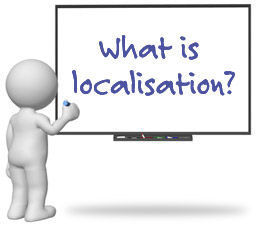Does your business deal with customers or partners overseas? Do you use translation services in Australia or elsewhere to get your message across? Are you getting the best out of these translation services? Many businesses have not yet understood the benefits of localisation. Choosing a professional translation service that can provide an effective localisation process can give your business a much needed edge over your competitors.
What is meant by localisation?
There are subtle and not so subtle differences in the use of language that every language has. This is easy to understand if you are an English speaker. Anyone who has listened to an American, a British person or an Australian, let alone an Indian, Malaysian or Ghanaian (all countries where English is widely understood and used) will appreciate the differences in word usage. Multiply that by every other key language in the world and you may now begin to understand that translation is not just about standard language usage. Effective translation services mean there should be sufficient familiarity to adapt the language used in a translation so that it appeals to and is appreciated by a target readership.
Some facts about localisation you may have missed
1. Nearly 3 billion people use the internet for some period of time – that’s potentially a huge market, but the catch is that most of them prefer to browse websites in their own language – even if they understand English well as a second language.
2. 90% of that huge potential market can be reached with the use of just 13 major world languages. Get your website or marketing material translated, SEO friendly, in those key languages and you have dramatically improved your chances of getting your message across to an international market.
3. Languages like Chinese and Russian are catching up fast on the use of English on the internet. Russian is now the second most used language on the internet, while there are more Chinese users than any other nationality.
4. Nearly 60% of internet users prefer to use their own language ahead of any other, so if a website is not translated into something they prefer, they will turn somewhere else.
5. Subtle differences within a language can make all the difference in market appeal. Words like ‘truck’ and ‘lorry’, ‘vacation’ and ‘holiday’, apartment’ and ‘flat’ reveal the level of localisation of language use: the first of each pair of words is more familiar with a North American market, while the second is used more in Britain.



